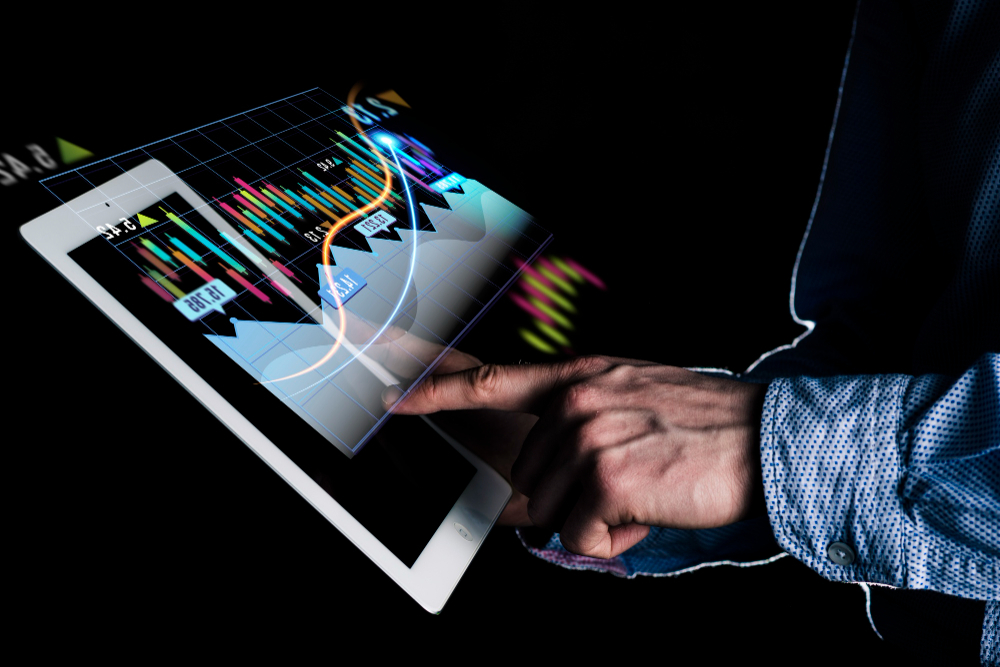Exploring the Potential of AI in Quantum Trading Strategies – 4 Strategies
In the ever-evolving landscape of finance, the integration of cutting-edge technologies has become increasingly prevalent. One such convergence that has captured the imagination of traders and investors alike is the fusion of artificial intelligence (AI) and quantum computing in trading strategies. This article delves into the burgeoning field of Quantum Trading Strategies, exploring how AI is poised to revolutionize the financial markets through the lens of quantum computing.

Understanding Quantum Trading Strategies
Quantum trading strategies represent a paradigm shift in the way financial markets operate. Traditionally, trading decisions have been based on complex mathematical models and analysis of historical data. However, quantum computing introduces a new dimension by harnessing the principles of quantum mechanics to perform computations at speeds exponentially faster than classical computers.
At the heart of quantum trading strategies lies the utilization of quantum algorithms to process vast amounts of data and identify trading opportunities with unparalleled efficiency. These algorithms leverage the inherent parallelism and superposition properties of quantum systems to explore multiple trading scenarios simultaneously, leading to more informed decision-making and potentially higher returns.
The Role of AI in Quantum Trading
While quantum computing provides the computational power, artificial intelligence serves as the brain behind quantum trading strategies. AI algorithms, particularly machine learning and deep learning models, play a crucial role in analyzing market data, identifying patterns, and predicting future price movements.
By incorporating AI into quantum trading strategies, traders can extract actionable insights from massive datasets in real-time, enabling them to adapt swiftly to changing market conditions and capitalize on emerging trends. Moreover, AI-driven algorithms have the ability to learn and evolve over time, continuously refining trading strategies to optimize performance and mitigate risks.
Advantages of Quantum AI in Trading
The integration of AI and quantum computing offers several distinct advantages for traders and investors:
- Enhanced Speed and Efficiency: Quantum computers can process complex calculations much faster than classical computers, enabling near-instantaneous analysis of market data and execution of trades.
- Improved Predictive Accuracy: AI algorithms leverage advanced statistical techniques to identify subtle patterns and correlations in market data, leading to more accurate predictions of future price movements.
- Risk Management: Quantum AI systems can assess risk factors in real-time and dynamically adjust trading strategies to minimize potential losses, enhancing overall risk management capabilities.
- Scalability: Quantum computing has inherent scalability, allowing traders to analyze large datasets with ease and explore complex trading strategies that were previously computationally prohibitive.
- Innovative Trading Strategies: The marriage of AI and quantum computing opens up new avenues for developing innovative trading strategies that leverage the unique capabilities of both technologies.
Challenges and Considerations
Despite the immense potential of AI in quantum trading strategies, several challenges and considerations need to be addressed:
- Complexity: Quantum computing and AI are highly complex fields that require specialized knowledge and expertise. Implementing quantum trading strategies may necessitate collaboration between domain experts in finance, quantum physics, and artificial intelligence.
- Quantum Hardware Limitations: Quantum computers are still in the nascent stages of development, with current hardware facing limitations such as error rates and coherence times. As quantum technology matures, these challenges are expected to diminish, but they remain significant hurdles in the near term.
- Data Privacy and Security: The use of AI in trading raises concerns regarding data privacy and security. Traders must ensure robust cybersecurity measures are in place to protect sensitive financial information and guard against potential threats.
- Regulatory Compliance: The regulatory landscape surrounding quantum trading strategies is still evolving, posing compliance challenges for market participants. It’s essential to navigate regulatory frameworks effectively and ensure adherence to legal requirements.
Future Outlook
As quantum computing continues to advance and AI algorithms become more sophisticated, the future of trading holds immense promise. Quantum trading strategies powered by AI have the potential to reshape the financial markets, ushering in an era of unparalleled speed, accuracy, and innovation.
In the coming years, we can expect to see widespread adoption of quantum AI technologies across the financial industry, from high-frequency trading firms to asset managers and hedge funds. As barriers to entry diminish and quantum computing becomes more accessible, traders of all sizes will have the opportunity to harness the power of AI-driven quantum strategies to gain a competitive edge in the market.
Conclusion
The convergence of AI and quantum computing in trading represents a transformative leap forward in the world of finance. By unlocking the potential of quantum trading strategies, traders can leverage the combined power of artificial intelligence and quantum mechanics to make better-informed decisions, mitigate risks, and capitalize on market opportunities.
While challenges remain, the promise of quantum AI in trading is undeniable. As technology continues to evolve and barriers to adoption are overcome, we stand on the brink of a new era in finance, where quantum-powered algorithms drive innovation and reshape the dynamics of the global markets.

